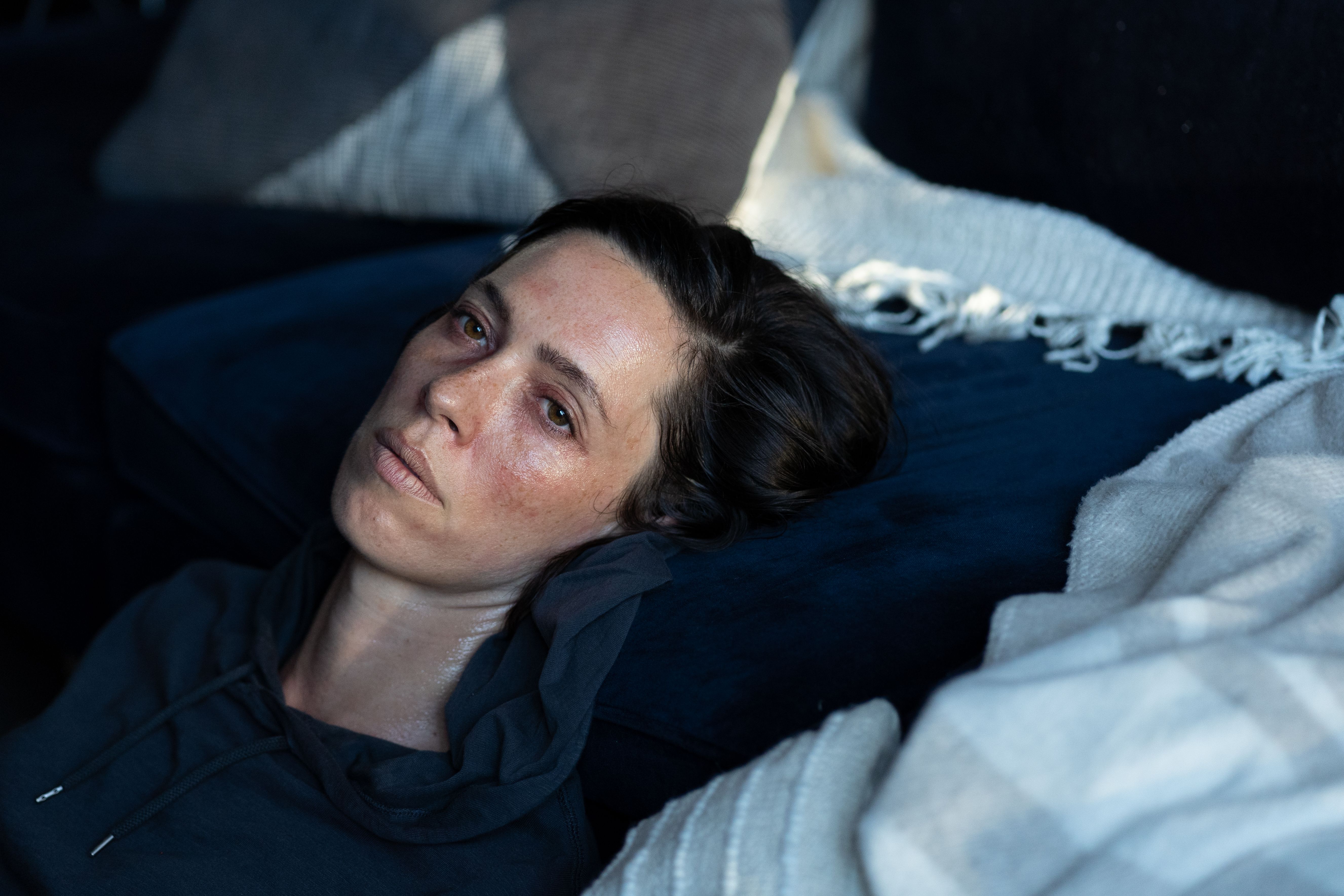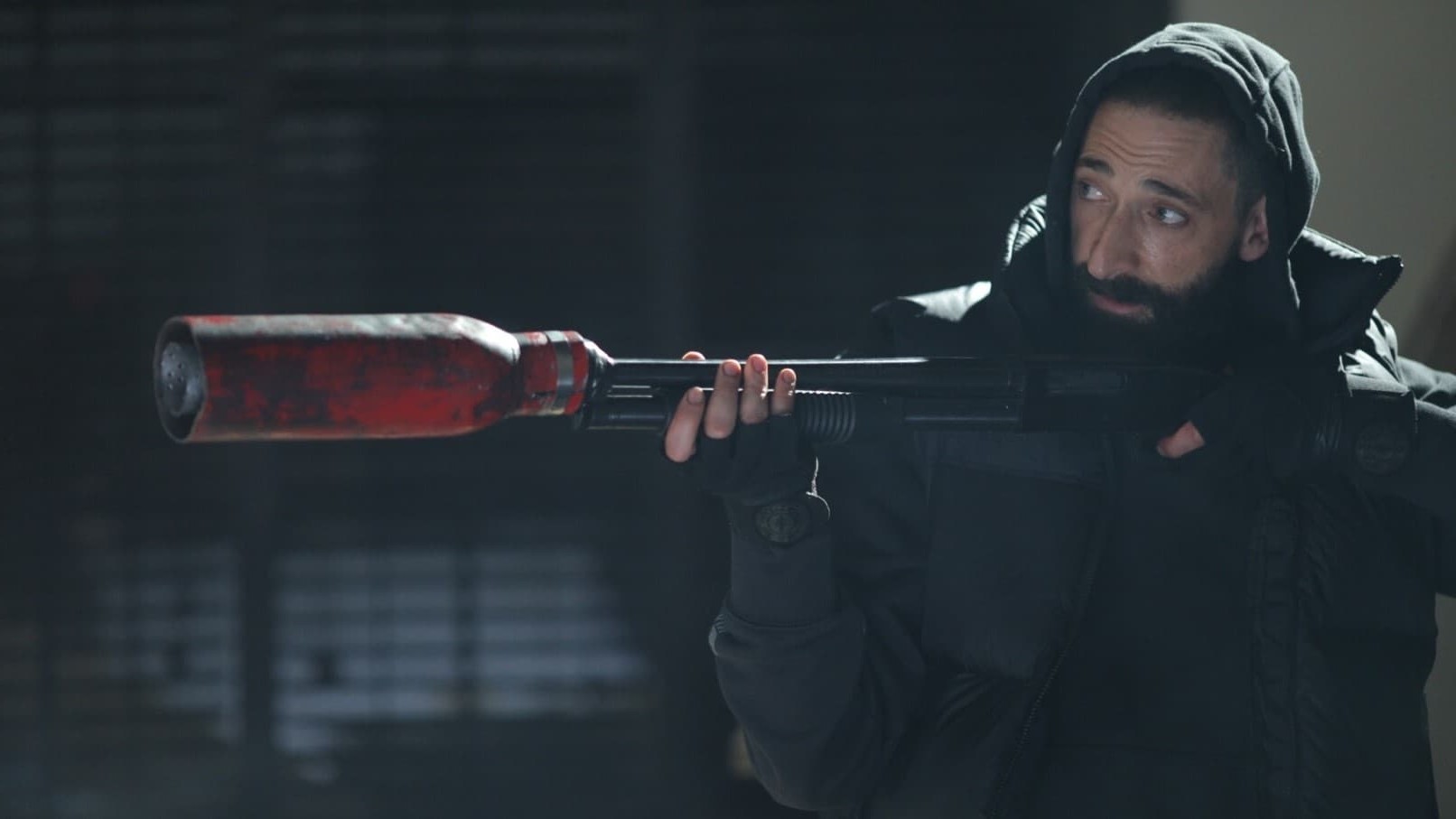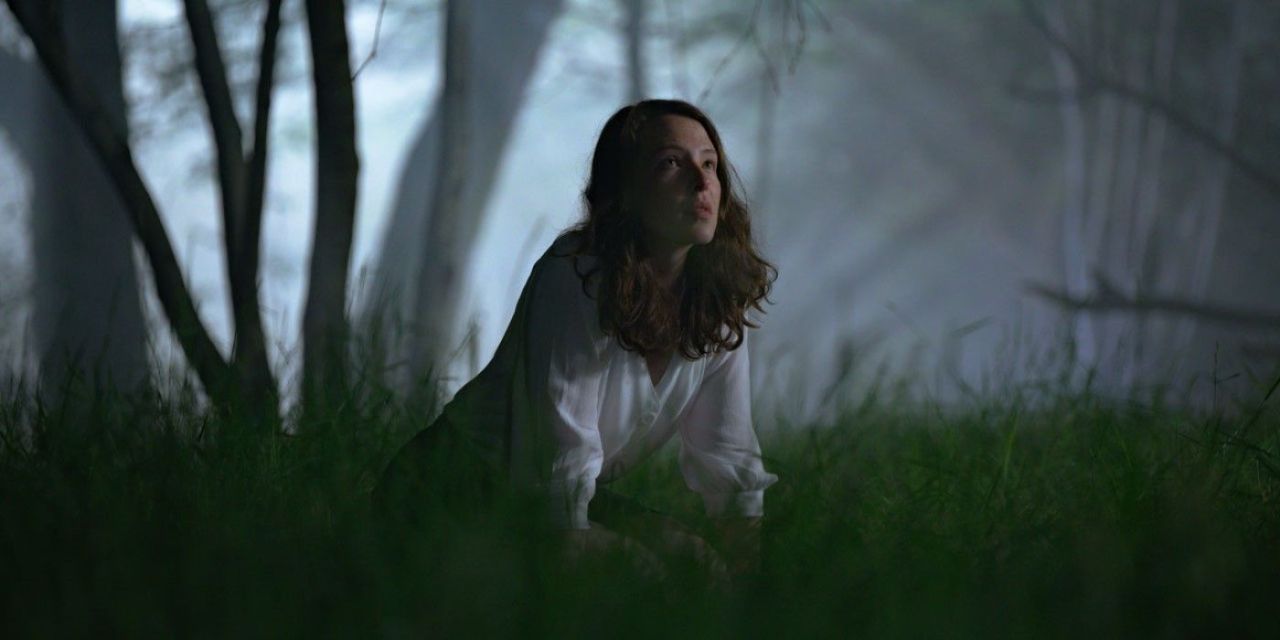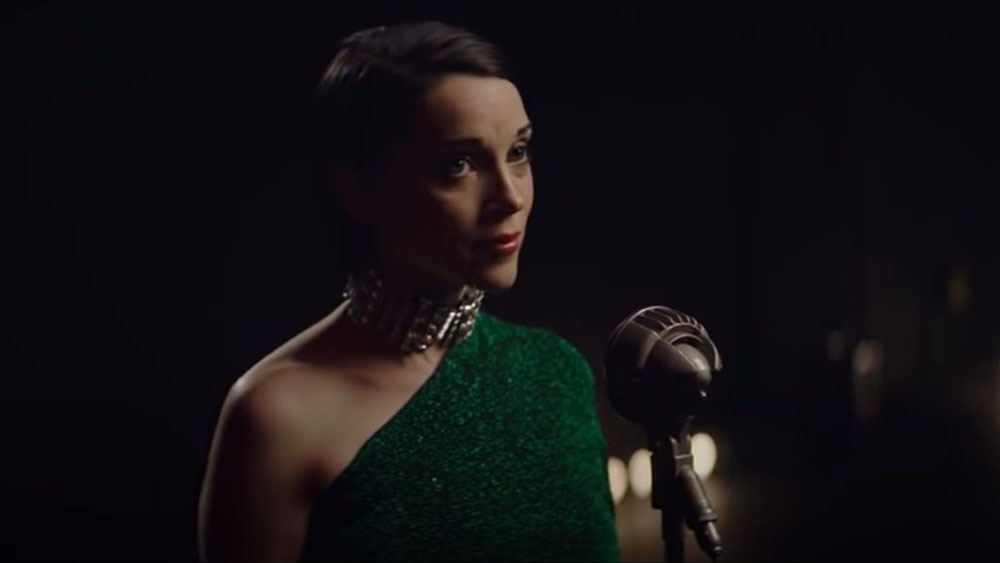Tag: IFC Films
-

Movie Review ~ Burial
The Facts: Synopsis: In the last days of WWII, a band of Allied soldiers trafficking Hitler’s remains out of Germany is ambushed by Nazi Werwolf fightersStars: Charlotte Vega, Tom Felton, Harriet Walter, Barry Ward, Kristjan Üksküla, Dan Skinner, Bill Milner, Niall Murphy, Tambet Tuisk, David Alexander, Hendrik Toompere, Esther Kuntu, Sten KarpovDirector: Ben ParkerRated: NRRunning…
-

Movie Review ~ Resurrection (2022)
The Facts: Synopsis: Margaret’s life is in order. She is capable, disciplined, and successful. Soon, her teenage daughter, whom Margaret raised by herself, will go to a fine university, just as Margaret had hoped. Everything is under control. That is, until David returns, carrying the horrors of Margaret’s past with him.Stars: Rebecca Hall, Tim Roth,…
-

Movie Review ~ Nitram
The Facts: Synopsis: Nitram lives a life of isolation and frustration with his mother and father in suburban Australia in the Mid 1990s. That is until he unexpectedly finds a close friend in a reclusive heiress. However, when that relationship meets a tragic end, he begins a slow descent that leads to disaster.Stars: Caleb Landry…
-

Movie Review ~ Clean
The Facts: Synopsis: Tormented by a past life, garbage man Clean attempts a life of quiet redemption. But when his good intentions mark him as a target of local crime boss, Clean is forced to reconcile with the violence of his past. Stars: Adrien Brody, Glenn Fleshler, Mykelti Williamson, RZA, John Bianco, Michelle Wilson, Richie…
-

Movie Review ~ The Feast
The Facts: Synopsis: A wealthy family gathers for a sumptuous dinner at their ostentatious home in the Welsh mountains. When a mysterious young woman arrives to be their waitress for the evening, her quiet yet disturbing presence begins to unravel their lives. Stars: Annes Elwy, Nia Roberts, Julian Lewis Jones, Steffan Cennydd, Sion Alun Davies,…
-

Movie Review ~ The Nowhere Inn
The Facts: Synopsis: When St. Vincent sets out to make a documentary about her music, the goal is to both reveal and revel in the unadorned truth behind her on-stage persona. But when she hires a close friend to direct, notions of reality, identity, and authenticity grow increasingly distorted and bizarre. Stars: St. Vincent, Carrie…
-

Movie Review ~ Come True
The Facts: Synopsis: A teenage runaway takes part in a sleep study that becomes a nightmarish descent into the depths of her mind and a frightening examination of the power of dreams. Stars: Julia Sarah Stone, Landon Liboiron, Tedra Rogers, Chantal Perron, Caroline Buzanko, Orin McCusker, Elena Porter, Brandon DeWyn, Karen Johnson-Diamond, Christopher Heatherington, Carlee…
-
Movie Review ~ A Call to Spy
The Facts: Synopsis: In the beginning of WWII, with Britain becoming desperate, Churchill orders his new spy agency to recruit and train women as spies. Their daunting mission: conduct sabotage and build a resistance. Stars: Sarah Megan Thomas, Stana Katic, Radhika Apte, Linus Roache Director: Lydia Dean Pilcher Rated: PG-13 Running Length: 123 minutes TMMM…
-
Movie Review ~ Ottolenghi and the Cakes of Versailles
The Facts: Synopsis: Follows chef Yotam on his quest to bring the sumptuous art and decadence of Versailles to life in cake form at the Metropolitan Museum of Art in New York. Stars: Yotam Ottolenghi, Dominique Ansel, Ghaya Oliveira, Dinara Kasko, Sam Bompas, Janice Wong Director: Laura Gabbert Rated: NR Running Length: 75 minutes TMMM…
-
Movie Review ~ Centigrade
The Facts: Synopsis: A married couple find themselves trapped in their frozen vehicle after a blizzard and struggle to survive amid plunging temperatures and unforeseen obstacles. Stars: Genesis Rodriguez, Vincent Piazza, Mavis Simpson-Ernst Director: Brendan Walsh Rated: NR Running Length: 89 minutes TMMM Score: (6/10) Review: Some people say that it’s never as fun to…
Recent Posts
- MSPIFF 2024 Volume 4

- MSPIFF 2024 Volume 3

- Movie Review ~ Infested

- MSPIFF 2024 Volume 2

- Movie Review ~ Abigail (2024)

Tags
007 20th Century Fox 2012 2013 A24 Amazon Studios Bradley Cooper Columbia Pictures Disney Focus Features Fox Searchlight Pictures Horror Hulu IFC Films James Bond Julianne Moore Lionsgate logo Magnolia Pictures Marvel MGM NEON Netflix New Line Cinema Paramount Paramount Pictures Roadside Attractions Samuel L. Jackson Scarlett Johansson sony Sony Pictures Sony Pictures Classics Studio Teaser The Weinstein Company Thriller Trailer United Artists Universal Universal Pictures Universal Studios Walt Disney Pictures Warner Bros. Pictures Warner Brothers Warner Brothers Pictures
Comments
[…] At his site, Botten listed his ten best and worst films of 2023. He also shared his honorable mentions…
[…] his site, Botten reviewed new releases “The Greatest Night in Pop,” “The Seeding,” “Hundreds of Beavers” and […]